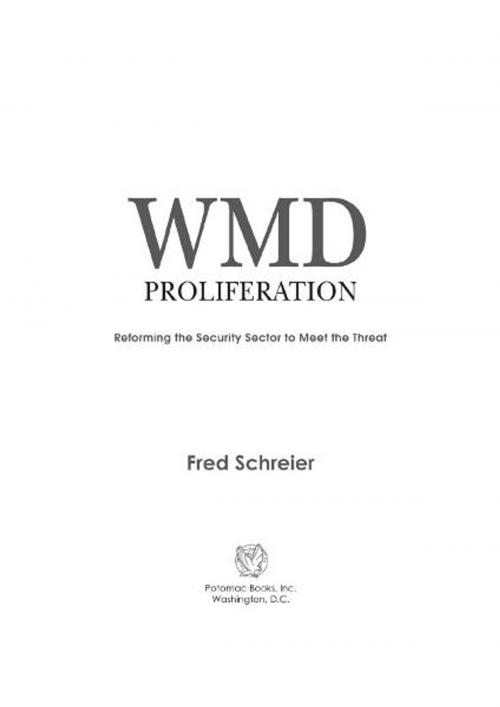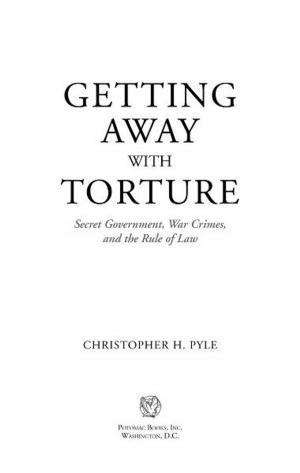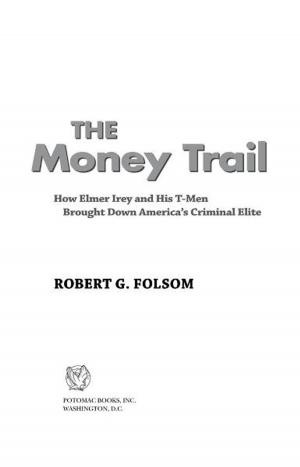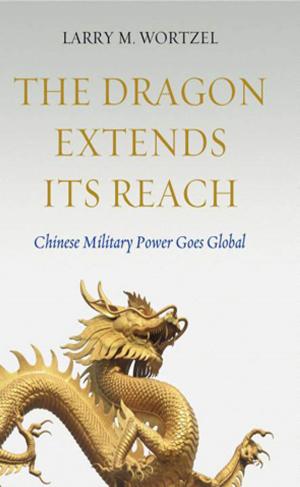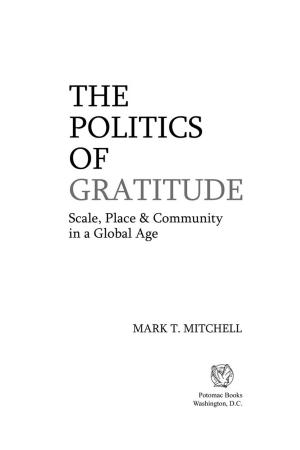WMD Proliferation
Nonfiction, Social & Cultural Studies, Political Science, Politics, Arms Control, History, Military, Weapons| Author: | Fred Schreier | ISBN: | 9781597976305 |
| Publisher: | Potomac Books Inc. | Publication: | July 31, 2009 |
| Imprint: | Potomac Books Inc. | Language: | English |
| Author: | Fred Schreier |
| ISBN: | 9781597976305 |
| Publisher: | Potomac Books Inc. |
| Publication: | July 31, 2009 |
| Imprint: | Potomac Books Inc. |
| Language: | English |
The threat of terrorists using WMD is not new, but the current expansion of these groups regional networks means that no state can consider itself immune from the threat of terrorist attack or proliferation activity. States must make improvements in their security sectors to prevent the future use of WMD by terrorists.
WMD Proliferation is the first book to address how nations should reform their security sectors to counter the threat of WMD use by terrorists. Schreier evaluates the likelihood that terrorists will use each type of WMD and examines the tactical, strategic, and ideological issues involved with each type. He analyzes why terrorists have not used unconventional weapons more than they have, and concludes that the answer lies in understanding both the terrorists capabilities and motives and how both factors limit the likelihood of terrorist attacks with unconventional weapons. Schreier also presents a list of criteria that a state must meet to be optimally prepared and organized to counter threats posed by the proliferation of WMD, terrorism, and organized crime. WMD Proliferation will be of interest to legislators, policymakers, scholars, students in the field of international security and international relations, and anyone concerned about intelligence and terrorism policy.
WMD Proliferation is the first book to address how nations should reform their security sectors to counter the threat of WMD use by terrorists. Schreier evaluates the likelihood that terrorists will use each type of WMD and examines the tactical, strategic, and ideological issues involved with each type. He analyzes why terrorists have not used unconventional weapons more than they have, and concludes that the answer lies in understanding both the terrorists capabilities and motives and how both factors limit the likelihood of terrorist attacks with unconventional weapons. Schreier also presents a list of criteria that a state must meet to be optimally prepared and organized to counter threats posed by the proliferation of WMD, terrorism, and organized crime. WMD Proliferation will be of interest to legislators, policymakers, scholars, students in the field of international security and international relations, and anyone concerned about intelligence and terrorism policy.
The threat of terrorists using WMD is not new, but the current expansion of these groups regional networks means that no state can consider itself immune from the threat of terrorist attack or proliferation activity. States must make improvements in their security sectors to prevent the future use of WMD by terrorists.
WMD Proliferation is the first book to address how nations should reform their security sectors to counter the threat of WMD use by terrorists. Schreier evaluates the likelihood that terrorists will use each type of WMD and examines the tactical, strategic, and ideological issues involved with each type. He analyzes why terrorists have not used unconventional weapons more than they have, and concludes that the answer lies in understanding both the terrorists capabilities and motives and how both factors limit the likelihood of terrorist attacks with unconventional weapons. Schreier also presents a list of criteria that a state must meet to be optimally prepared and organized to counter threats posed by the proliferation of WMD, terrorism, and organized crime. WMD Proliferation will be of interest to legislators, policymakers, scholars, students in the field of international security and international relations, and anyone concerned about intelligence and terrorism policy.
WMD Proliferation is the first book to address how nations should reform their security sectors to counter the threat of WMD use by terrorists. Schreier evaluates the likelihood that terrorists will use each type of WMD and examines the tactical, strategic, and ideological issues involved with each type. He analyzes why terrorists have not used unconventional weapons more than they have, and concludes that the answer lies in understanding both the terrorists capabilities and motives and how both factors limit the likelihood of terrorist attacks with unconventional weapons. Schreier also presents a list of criteria that a state must meet to be optimally prepared and organized to counter threats posed by the proliferation of WMD, terrorism, and organized crime. WMD Proliferation will be of interest to legislators, policymakers, scholars, students in the field of international security and international relations, and anyone concerned about intelligence and terrorism policy.
